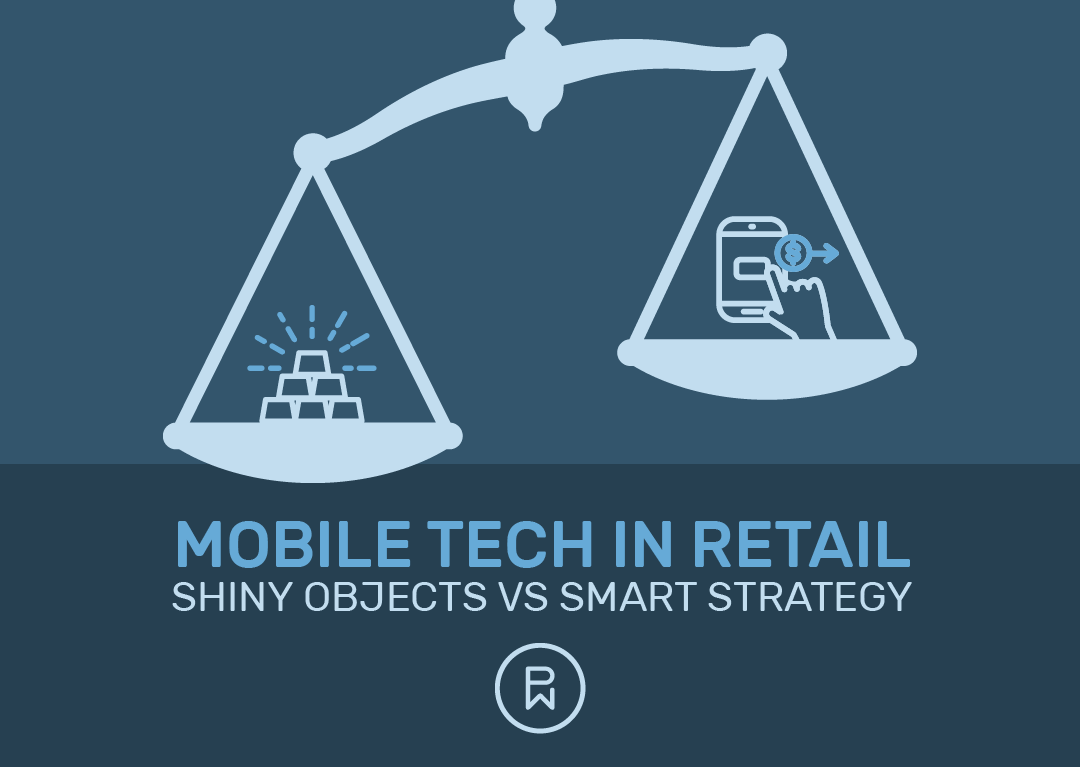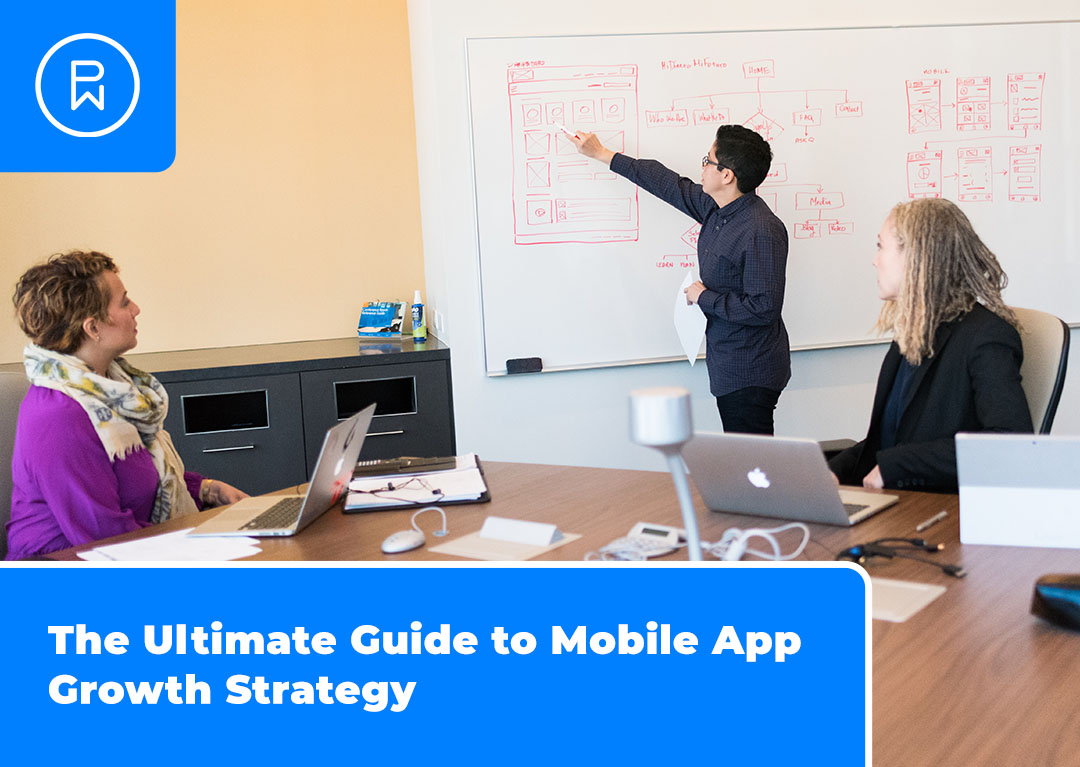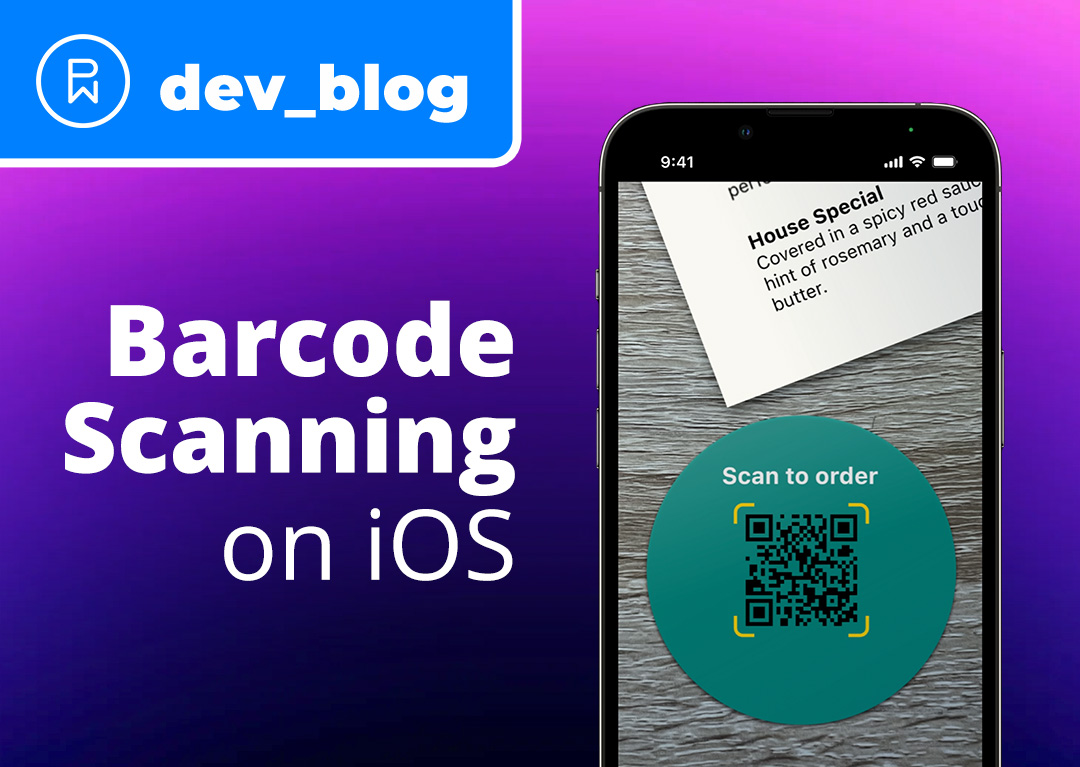In the mobile world, we’re all a bit guilty of focusing on the next shiny object. At this year’s SXSW, retailer Outdoor Voices presented its new app, enhanced with the latest augmented reality (AR) tech. Design / dev agency Fjord got in on the action and presented a prototype AR app for 365 by Whole Foods Market. Exciting stuff with some compelling mobile shopping use cases, to be sure.
But AR is just one interesting technology. Shopping isn’t the only use case for mobile retailer tech. And a smart mobile strategy isn’t purely about the app. So what is it about then?
Smart mobile strategy is goal-oriented.
If you start by selecting your favorite shiny mobile use case, you’re putting the cart before the horse. Instead, you must start with your business objective in mind. For example, if you want to improve the shopper experience, there are multiple mobile use cases that can enable you to do so—and some of them are actually driven by mobile capabilities built to empower store associate’s, not the shopper’s.
How can both customer- and associate-facing apps enhance the shopper experience? Download our on-demand webinar, “Redefining Retail: Surprising Mobile Use Cases Keeping Retailers Competitive” to find out.
Smart mobile strategy is platform-based and user-agnostic.
When it comes to mobile retailer tech, Software-as-a-Service mobile platforms provide strong, scalable backbone that is flexible enough to support a wide range of use cases for many different kinds of users, from customers to store employees to warehouse teams and even back-office staff. The app experience and capabilities may be different for different users—obviously, shoppers aren’t going to have the same mobile needs as store associates—but the underlying platform can and should be the same. This synergy enables integrated data collection and reporting across all user groups, rather than creating another set of silos.
Smart mobile strategy is integrated throughout the business.
When e-commerce first started, it was on its own little island, separate from the rest of store operations. Eventually, retailers realized that e-commerce had to be central to the business. More recently, many brands have thought of mobile as a channel, primarily residing under marketing’s umbrella. That’s starting to change as savvy retailers recognize that the best mobile approach eliminates siloes and affects every aspect of the business.
Roughly half of the retailers surveyed in Boston Retail Partners’ 2017 Digital Commerce Survey reported that they are aligning digital commerce initiatives with the store organization, overseen by a C-level exec who manages anything and everything affecting the customer experience. Because mobile uniquely affects not just marketing and revenue teams but also operations, facilities, fulfillment and even product, Phunware CEO Alan S. Knitowski would take this a step further. As he outlined last year, the companies seeing global success with mobile align their mobile application, media and data science teams under one leader who is responsible for all digital transformation across the organization and manages all of these groups as an integrated unit.
Retail’s mobile-first transformation is a marathon, not a sprint.
By taking an iterative, lifecycle-based approach to mobile, retailers can initiate a continuous cycle of positive change that moves them closer and closer to achieving their business goals.
Phunware has helped many of the largest brands in North America develop smart mobile strategies all across the app lifecycle, and retail is just one of our areas of expertise. Want to learn more? Check out our case study of a Fortune 500 department store to learn about how Phunware’s solution helped expand their use of mobile solutions to improve store productivity and employee performance.










